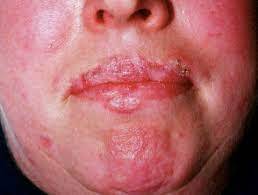Understanding and Preventing Lupus
Introduction:
Lupus is a chronic autoimmune disease that affects millions of people worldwide. It can cause inflammation and damage to various organs and tissues in the body, leading to a range of symptoms such as fatigue, joint pain, skin rashes, and more. While there is currently no cure for lupus, there are steps individuals can take to reduce their risk of developing the disease and manage its symptoms effectively. In this comprehensive guide, we will explore what lupus is, its causes, symptoms, diagnosis, treatment options, and most importantly, how to prevent it.
Understanding Lupus:
Lupus, also known as systemic lupus erythematosus (SLE), is an autoimmune disease where the body's immune system mistakenly attacks healthy tissues and organs. This attack can lead to inflammation and damage in various parts of the body, including the skin, joints, kidneys, heart, lungs, brain, and blood vessels.
The exact cause of lupus is still unknown, but it is believed to involve a combination of genetic, environmental, and hormonal factors. Certain genes may make some individuals more susceptible to developing lupus, while environmental triggers such as infections, sunlight, medications, and stress can exacerbate the condition.
Symptoms of lupus can vary widely from person to person and can also mimic other conditions, making it challenging to diagnose. Common symptoms include:
1. Fatigue
2. Joint pain and swelling
3. Skin rashes, particularly on the face (butterfly rash)
4. Fever
5. Chest pain
6. Hair loss
7. Mouth or nose ulcers
8. Photosensitivity (sensitivity to sunlight)
9. Raynaud's phenomenon (changes in skin color in response to cold or stress)
10. Organ involvement (such as kidneys, heart, lungs, or brain)
Preventing Lupus:
While there is no guaranteed way to prevent lupus, there are several steps individuals can take to reduce their risk and manage their symptoms effectively:
1. Protect Yourself from UV Radiation:
Exposure to sunlight can trigger lupus flares in some individuals. To minimize your risk, avoid prolonged sun exposure, especially during peak hours (10 a.m. to 4 p.m.). Wear protective clothing, including hats and long sleeves, and use broad-spectrum sunscreen with a high SPF regularly.
2. Maintain a Healthy Lifestyle:
Eating a balanced diet, exercising regularly, maintaining a healthy weight, and getting an adequate amount of sleep can help support overall health and reduce the risk of autoimmune diseases like lupus. Avoid smoking and limit alcohol consumption, as these habits can exacerbate inflammation and increase the risk of developing lupus complications.
3. Manage Stress:
Stress can trigger lupus flares and worsen symptoms in some individuals. Practice stress-reduction techniques such as mindfulness, deep breathing exercises, yoga, meditation, or engaging in hobbies and activities you enjoy. Seeking support from friends, family, or a therapist can also help you cope with stress more effectively.
4. Be Mindful of Medications:
Certain medications, such as antibiotics, antifungal drugs, and blood pressure medications, can trigger lupus flares or worsen symptoms in susceptible individuals. If you have a history of lupus or autoimmune disease, talk to your healthcare provider about potential medication risks and alternatives.
5. Monitor Your Health:
Regular medical check-ups and monitoring can help detect lupus or its complications early and prevent further damage. Be proactive about discussing any symptoms or concerns with your healthcare provider, and follow their recommendations for managing your condition.
6. Know Your Triggers:
Identifying and avoiding triggers that exacerbate lupus symptoms can help prevent flares and improve overall quality of life. Keep a journal to track your symptoms and potential triggers, such as stress, diet, medications, or environmental factors, and make adjustments as needed to minimize their impact.
7. Stay Informed:
Educate yourself about lupus, its symptoms, treatment options, and lifestyle modifications that can help manage the condition effectively. Stay up-to-date on the latest research and developments in lupus treatment and prevention, and actively participate in your healthcare decisions.
Conclusion:
While lupus is a complex and challenging condition to manage, taking proactive steps to prevent flares and manage symptoms can significantly improve quality of life for individuals living with the disease. By protecting yourself from UV radiation, maintaining a healthy lifestyle, managing stress, being mindful of medications, monitoring your health, identifying triggers, and staying informed, you can reduce your risk of developing lupus and effectively manage the condition if diagnosed. Working closely with your healthcare provider and support network can help you navigate the challenges of living with lupus and achieve optimal health and well-being.




No comments yet
Be the first to share your thoughts!